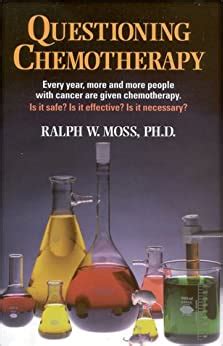A Quote by Ralph W. Moss
Kanematsu Sugiura.....took down lab books and showed me that in fact Laetrile is dramatically effective in stopping the spread of cancer. The animals were genetically programmed to get breast cancer and about 80 - 90% of them normally get spread of the cancer from the breast to the lungs which is a common route in humans, also for how people die of breast cancer, and instead when they gave the animals Laetrile by injection only 10-20% of them got lung metasteses. And these facts were verified by many people, including the pathology department.
Quote Topics
Related Quotes
When Dr. Manner reported on the total remission of breast cancer in lab animals (Using 'Laetrile in conjunction with vitamins and enzymes')..., ACS President, Ben Byrd, criticised (him) for making his announcement in public, and said such announcements should be made only in a proper scientific forum.


































